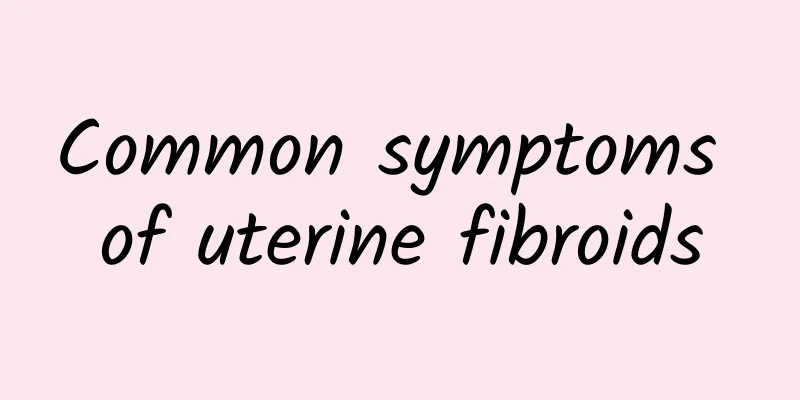What medicines should I take after a miscarriage? Doctors recommend these 4 categories

|
Generally speaking, after a miscarriage, women often need to choose appropriate medicines according to their specific physical conditions to regulate their bodies. The medicines usually used are those with anti-infection effects, such as antibiotics. Blood-activating and blood-stasis-removing medicines can also be considered. In addition, after a miscarriage, women also need to do a good job of dietary care and hygienic cleaning. Although every woman does not want to have a miscarriage, in real life, there are always various reasons that lead to miscarriage in women. The occurrence of miscarriage will not only have a great impact on women's mental health, but also cause great damage to women's bodies. Therefore, after a miscarriage, women often need to take certain medicines to regulate their bodies. So what medicines should be taken after a miscarriage? |
<<: What medicine should I take after a miscarriage? What are the precautions after a miscarriage?
>>: How to prevent biochemical pregnancy? Doctors say to do these 10 things to prevent
Recommend
How does adnexitis affect female fertility?
I believe many patients want to know about the im...
How many days after miscarriage can you eat fruit
Generally speaking, women who have had a miscarri...
How to treat uterine fibroids better? Here are some common surgical methods for uterine fibroids.
Surgery is effective in treating uterine fibroids...
Premenopausal adjuvant endocrine therapy options
What should be chosen for premenopausal adjuvant ...
Are hormones effective for weight loss? Exposing the NG Weight Loss Method
When it comes to the hundreds of ways to lose wei...
Will taking medication for pelvic inflammatory disease cause discharge?
Pelvic inflammatory disease seriously affects the...
Some clinical manifestations of cervical hypertrophy in women
Cervical hypertrophy is a common gynecological di...
What can I eat to temporarily inhibit the growth of uterine fibroids? What medicine can I take to inhibit the growth of uterine fibroids?
What can I eat to temporarily inhibit the growth ...
Can pelvic effusion cause fever?
Can pelvic inflammatory disease cause fever? 1. P...
Could pelvic effusion be cervical adhesion?
Could pelvic effusion be cervical adhesion? In li...
What to eat after a miscarriage? Ensure high-quality protein
After a miscarriage, the harm to the female body ...
The dangers of chocolate cyst puncture
Chocolate cyst is a common gynecological disease ...
Hidden dangers of long-term untreated irregular menstruation
What are the hazards of irregular menstruation? A...
How should women prevent dysmenorrhea?
Among the many gynecological diseases, dysmenorrh...
Don't treat vulvar leukoplakia as inflammation
Vulva itching and atrophy after six months of mar...









